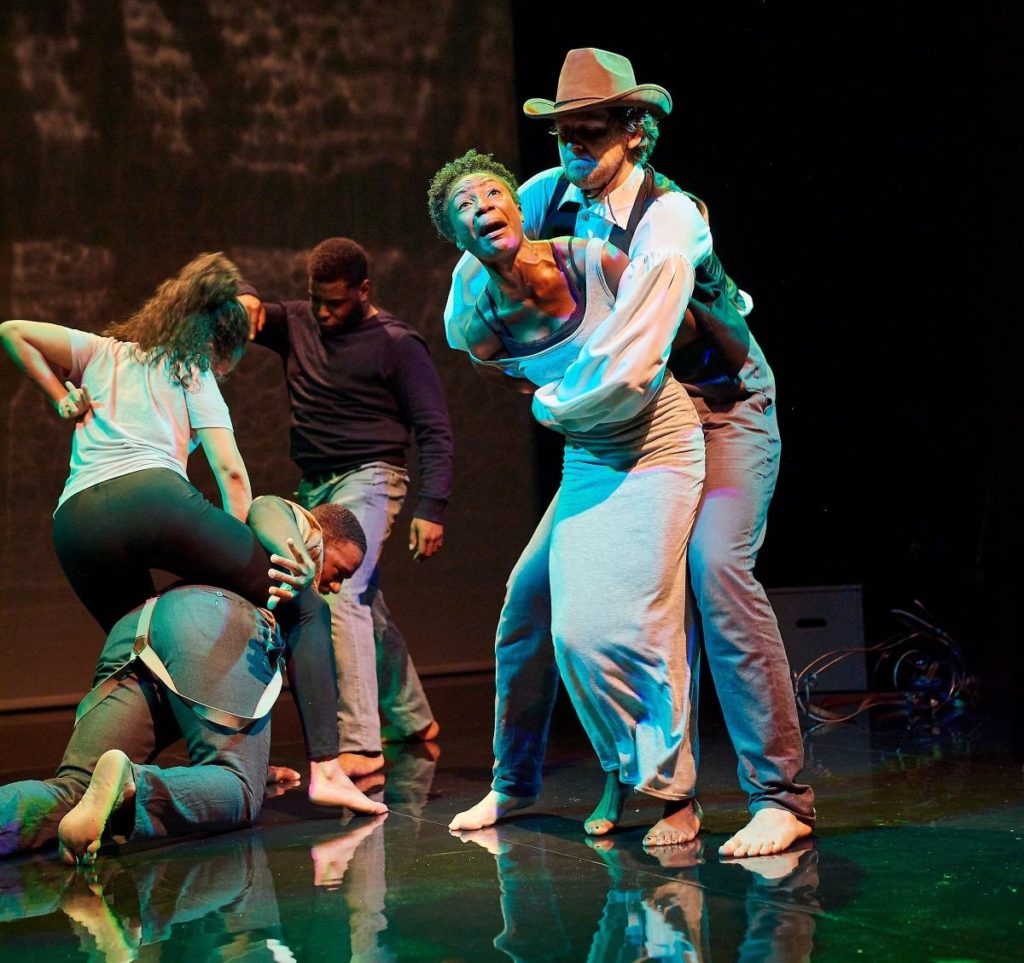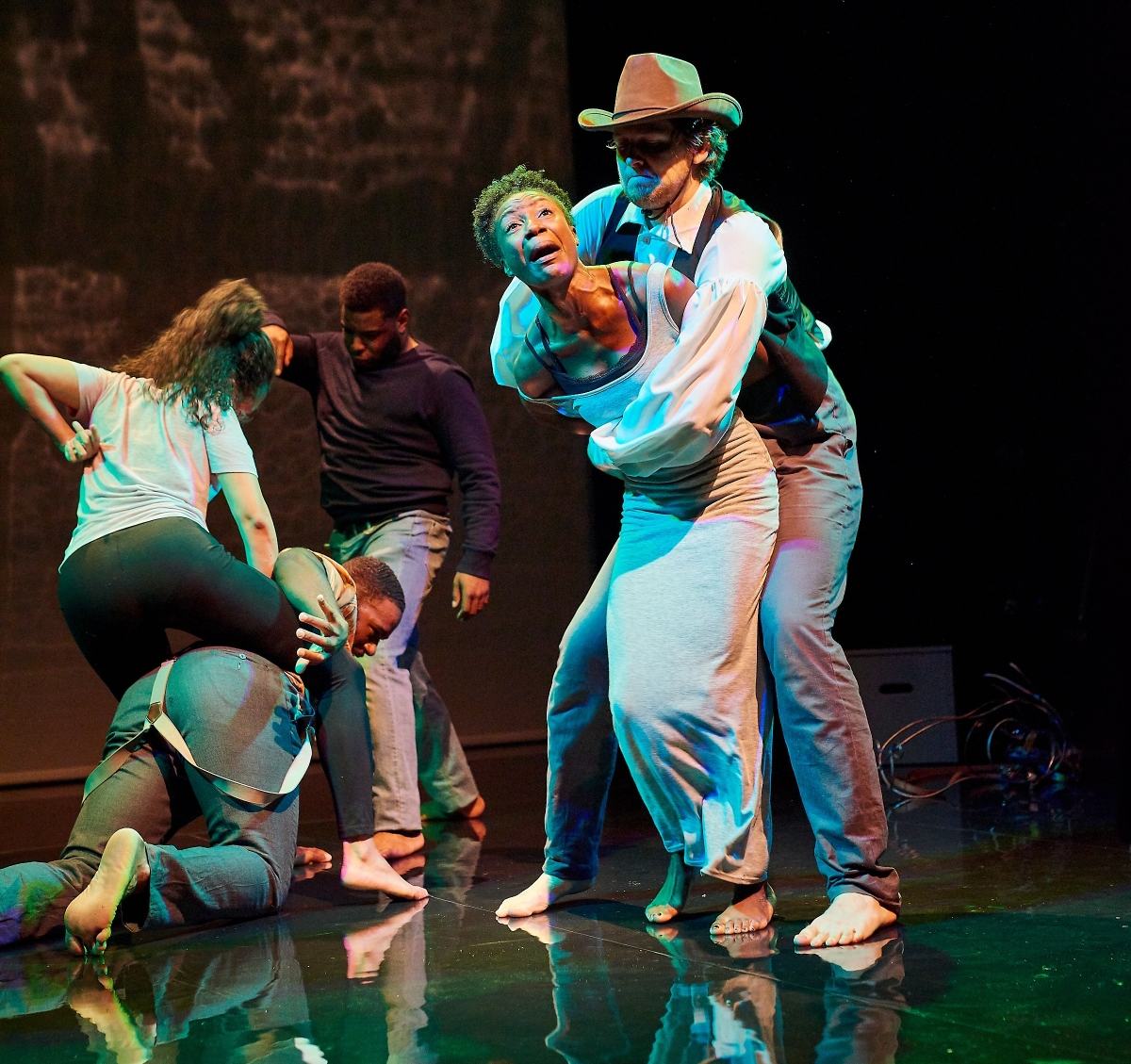
Six figures pull and push, writhe and wrestle, arching over each other’s backs until, one by one, five of them fall to the floor as if dead. The sixth does not fall, and he is the only white performer. In an intensely gripping hour of physical theatre, Freeman tells six stories, threaded together by recurring themes of institutional racism and injustice. The oldest of these accounts takes us back to the 1840s; the most recent reached its tragic end just three years ago. They tell of people whose mental states rendered them incapable of being responsible for their actions, yet who were treated as criminals. Our attitudes towards the mentally ill have too often been characterised by ignorance and fear, leading to hostility and stigmatisation. When such negative perspectives are combined with racial prejudice, the resulting mix is toxic in the extreme.
This play takes its sadly ironic title from William Freeman, the first American to plead not guilty by reason of insanity. Wrongly accused of horse-theft, he was so badly beaten when in prison that he lost his mind. Upon release, he slaughtered a family of four. Bravely, Freeman does not shirk from graphically depicting his behaviour, but it is equally forthright in asserting that he did not deserve to hang. Writer Camilla Whitehall uses his story and five others to illustrate the disturbing connection that exists between mental illness and racial prejudice. Freeman is presented by the Strictly Arts theatre company, who point out that, compared with the general population, the risk of poor mental health is ‘three to five times greater for those in Afro-Caribbean communities’. Those communities are also over-represented in our prisons. These are deeply serious issues, but Freeman is not a ponderously didactic piece. The stories are presented with vibrant music, poetry, song and dance. Clever use is made of shadow puppetry. There are even flashes of humour, including one very funny ‘white men can’t dance’ moment. But there is no doubt that this is sincere, impassioned theatre. Time and again we hear the cry, ‘Nothing has changed!’
The people in these stories were ‘the kind of person they don’t want to believe’. For example, we learn about Texan Sandra Bland, who was stopped in her car merely for changing lanes without signalling. A trivial incident, yet it led to her arrest, and she was found dead in her police cell just a few days later. Closer to home, we learn about David Oluwale, found drowned in the River Aire, in Leeds, back in 1969. He was mentally unwell, homeless, and suffered dreadful harassment from the police. His sad end resulted in the first successful prosecution of British police officers for the death of a black man, but the exact circumstances were never established. The brutality of such incidents is illustrated with skilfully choreographed and frighteningly realistic violence. On more than one occasion I found myself wincing as another punch landed, or another figure was thrown to the floor. Physical theatre, indeed.
Freeman is an eloquent and moving statement that black lives do indeed matter. It won a Spirit of the Fringe Award in Edinburgh, and was shortlisted for Amnesty International’s Freedom of Expression Award, and deservedly so. At times it makes for uncomfortable viewing, but it addresses issues that have been avoided for far too long. Catch it if you can.
★★★★☆ Mike Whitton 24th May 2019


